Best DevOps Tools in 2024 (Free & Paid)
DevOps is a set of software development practices in which communication, integration, and collaboration in the product development cycle are emphasized. The primary purpose of DevOps is to effectively eliminate the silos between software development (Dev) and operations (Ops) teams and shorten the systems development life cycle while delivering features, fixes, and updates frequently in close alignment with business objectives.
DevOps is not simply employing new tools. It is to change processes and simplifying workflows and improving collaboration between developers, testers, and system admins.
DevOps open source tools and testing frameworks assist organizations with their configuration, integration, and delivery management needs. These tools help organizations in the proper implementation of DevOps strategies and automate the entire testing process.
Organizations have adopted Agile and DevOps to save time and achieve quality and money.
We always have benefits with the right set of tools. These DevOps tools in the DevOps lifecycle helps in Continuous Integration, Configuration Management, Continuous Inspection, Containerization, and Virtualization.
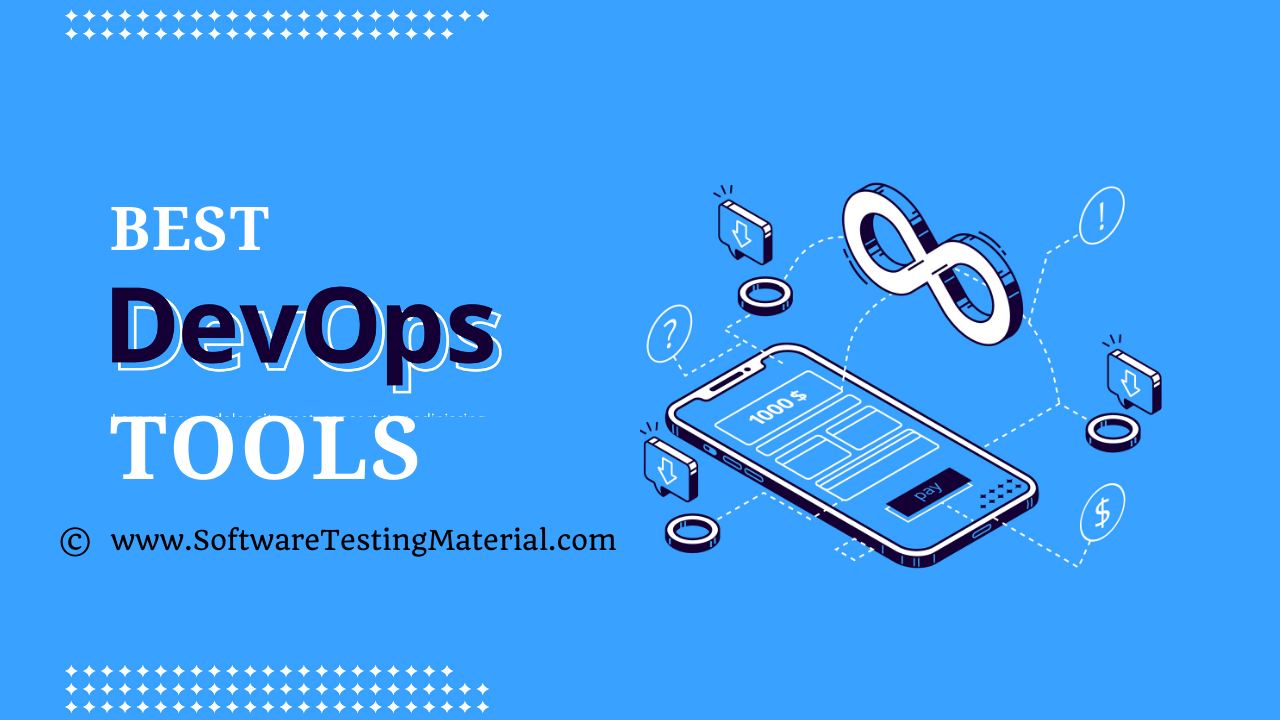
Which DevOps tools are right for your team?
Many DevOps tools have been developed with technological advancement to make collaboration and development easier. If you think that there are any popular tools that we missed, please let us know in the comment section below.
Top DevOps Tools
Following is a curated list of the Top DevOps Tool.
#1. Jenkins
Jenkins is an open-source DevOps tool. It supports us to automate all sorts of tasks related to building, deploying, and automating any project. It allows us to build and test our software quickly. It offers more than 1000 plugins. It integrates with almost all DevOps tools.
Features:
- Easy set up and configure.
- It is cross-platform and can be used on Windows, Mac OS, Linux etc.,
- It can perform automated testing of builds
- We could publish results and send email notifications to all the team members.
- It provides CI/CD (Continuous Integration and Continuous Delivery) service for software development
- Easily perform work distribution across several machines.
Website: Jenkins
Pricing: Free
#2. Bamboo
Bamboo is a continuous integration and deployment tool that ties automated builds, tests, and releases together in a single workflow.
It is Atlassian’s CI/CD server solution so it integrates seamlessly integrates with other Atlassian products such as BitBucket and JIRA. It comes with many prebuilt functionalities and saves you a lot of configuration time.
Features:
- Easy to setup
- Run tests in parallel batches as it supports up to 100 remote build agents.
- It can connect with Jira Software, Bitbucket, Fisheye & Crucible, and hundreds of other tools!
- It support technologies and languages like Docker, Git, SVN, AWS CodeDeploy,
- End-to-end visibility into release implementation, quality, and status with tight Jira Software and Bitbucket Server integration.
Website: Bamboo
Pricing: The pricing starts at $10 for 10 jobs. It also has 2 different plans:
- Small Teams at $10 for 10 jobs
- Growing Teams at $1100 for unlimited jobs, unlimited local agents, and 1 remote agent.
Price varies depends on the number of remote agents. You can get up to 1000 remote agents and the price of 1000 remote agents is $145480.
Bamboo offers a free trial for 30 days.
#3. Selenium
Selenium is an open-source automation testing tool used to automate web applications. It provides a suite of tools such as Selenium IDE, Selenium RC, Selenium WebDriver. Selenium is not just limited to automating web applications. It supports programming languages such as Java, C#, Groovy, Perl, PHP, Python, and Ruby. It also has a record/playback tool (i.e., Selenium IDE). With Selenium, you can create robust and browser-based regression automation tests and suites. It is the most popular automation testing tool in the current market.
Features:
- It has the record and Playback functionalities.
- It supports multiple languages such as Java, C#, Groovy, Perl, PHP, Python and Ruby
- It supports multiple browsers and operating systems.
- It supports parallel test execution
Website: Selenium
Pricing: Free
#4. Jmeter
Apache JMeter is open-source software designed to load test functional behavior and measure performance and can be used in DevOps methodology. It can be used to simulate a heavy load on a server, group of servers, network or object to test its strength or to analyze overall performance under different load types.
Features:
- Ability to load and performance test many different applications/server/protocol types such as Web, SOAP, REST Webservices, etc.,
- Full-featured Test IDE that allows fast Test Plan recording (from Browsers or native applications), building, and debugging.
- Easy Continuous Integration through 3rd party Open Source libraries for Maven, Gradle, and Jenkins
Located: United States
Website: Jmeter
#5. CruiseControl
CruiseControl is both a continuous integration tool and an extensible framework for creating a custom continuous build process. It includes dozens of plugins for a variety of source controls, build technologies, and notifications schemes including email and instant messaging. A web interface provides details of the current and previous builds. And the standard CruiseControl distribution is augmented through a rich selection of 3rd Party Tools.
Features:
- Open-source application.
- It can be integrated with different Source Control systems like VSS, CSV, svn, git, perforce, ClearCase, etc.,
- It allows the building of multiple projects on a single server.
- It can be integrated with external tools like NAnt, NDepend, NUnit, MBUnit, and Visual Studio.
- It supports Remote Management.
Website: CruiseControl
Located: United States
#6. HeadSpin
Headspin provides Mobile, IoT, and 5G solutions to optimize connected experiences across applications, devices, and networks. It is the world’s first Connected Intelligence Platform™. HeadSpin empowers development, QA, operations, and network teams to optimize connected experiences and ensure digital business success.
Features:
- Access to 300+ devices over 30+ countries on shared device cloud
- Functional Testing
- Remote Debugging
- Real SIM-enabled Android and iOS devices
- 500+ parallel tests
- Regression Testing
- Automation
- Localization Testing
- Locally debugging and code profiling
Founded: 2015
Located: United States
Website: HeadSpin
Pricing: It offers a free trial. For pricing, contact sales.
#7. Buddy
Buddy is a smart web-based and self-hosted continuous integration and continuous delivery tool for developers that can be used to build, test, and deploy software with code from GitHub, Bitbucket and GitLab.
Features:
- Ready to use actions (100+ built-in actions)
- Changeset-based executions (Build, test & deploy only what changed)
- Filesystems for git clones, cache, artifacts management & assets
- Attachable microservices
- Real-time progress & logs, unlimited history
- Built-in build environments
- Multi-repository workflows
- IaaS, AWS, Google Cloud, Docker, Kubernetes deployments
- Performance and app monitoring
- Blockchain deployments
Founded: 2015
Located: Poland
Website: Buddy
Pricing: The pricing starts at $75 per month. It also has 2 different plans:
Pro at $75 per month.
Hyper at $200 per month.
Buddy.works also offers a 14 days Free Plan
#8. QuerySurge
QuerySurge is the smart data testing solution that automates validation & testing of critical data that is the first-of-its-kind fully automated DevOps solution for continuous testing of your DataOps pipeline.
Key Features
- Teams have access to 60+ API calls with almost 100 different properties
- Integrates with virtually all DevOps and DataOps solutions in the marketplace
- Testers can choose between a Command-Line API or a RESTful API
- Testers can dynamically generate, execute, and update tests and data stores utilizing API calls
Website: QuerySurge
Pricing: It offers a free trial. For pricing, Contact Sales
Founded: 1996
Located: United States
#9. PagerDuty
PagerDuty is an incident management platform for monitoring systems and triggering alerts. This DevOps tool empowers developers to deliver production-ready applications by putting them closer to the performance of your code.
Website: PagerDuty
Features:
- It is easy to set up and use.
- It integrates with any tool in your ecosystem, aggregating, and transforming any signal into real-time insight and action.
- Its scheduler features are flexible and powerful to manage on-call rotation.
Pricing: The pricing starts at $10 up to 6 users/month. It also has 3 different plans:
- Starter at $10 up to 6 users per month.
- Team at $29 per user per month.
- Business at $39 per user per month.
PagerDuty also offers a 14 day free trial and a Customized Plan.
#10. Vagrant
Vagrant is an open-source DevOps tool to build and maintain portable virtual software development environments. It lowers the development environment setup time and increases production parity. It also integrates with configuration management tools like Ansible, Chef, Docker, Puppet, or Salt.
Features:
- It is simple and powerful
- Easy to setup
- Its supports cross-platform – works on Mac, Linux, Windows and more
- It integrates with configuration management tools like Ansible, Chef, Docker, Puppet, or Salt.
Website: Vagrant
Pricing: Free
#11. Docker
Docker is a DevOps technology suite for developers and sysadmins to build, run, and share applications with containers. It offers two products i.e., Docker Hub and Docker Enterprise.
Features:
- It supports automated testing, CI/CD, etc.
- User management with role-based access controls
- Repository management both public and private
- It runs on Linux and Windows
Website: Docker
Pricing: The pricing starts at $7 per month. It also has 2 different plans:
- Pro at $7 per month for individuals
- Team at $9 per user per month for organizations
Docker also offers a free plan for every developer, including unlimited public repos and one private repo.
#12. Nagios
Nagios provides enterprise-class Open Source IT monitoring, network monitoring, server, and application monitoring. It is one of the useful DevOps monitoring tools that help you to monitor your entire IT infrastructure, quickly sort log data, or analyze your bandwidth.
It offers open source monitoring sources like
- Nagios XI
- Nagios Log Server
- Nagios Fusion
Key Features:
- Open Source software
- Comprehensive monitoring – Monitors applications, services, OS, network protocols, system metrics and infrastructure components with a single tool
- It provides a centralized view of entire monitored IT infrastructure
- Alerts can be delivered to your team via email or SMS
- Its event handlers allow an automatic restart of failed applications and services
- Stable, and Reliable Platform – Over 10 years of active development
- Hundreds of community-developed addons
- Active community mailing lists provide free support
Website: Nagios
#13. Unified Functional Testing (UFT)
Unified Functional Testing (UFT) is a well-known commercial testing tool for functional testing, continuous testing. It provides a comprehensive feature set for API, web services, and GUI testing of desktop, web, and mobile applications across platforms. The tool has advanced image-based object recognition feature, reusable test components, and automated documentation.
Features:
- It supports CI via integration with CI tools such as Jenkins.
- It supports end to end testing
- AI-powered intelligent test automation
- Increase test coverage across the UI and API
Website: UFT
License: Commercial
Pricing: It offers a free trial for 30 days
- Runtime engine at $2300 annual license
- UFT One at $3200 annual license
You can also contact their support for a customized solution.
#14. Appium
Appium is one of the finest names in the mobile app development field. Appium is an open-source automation tool used to test mobile applications in the best possible manner. It is also considered as a cross-platform automation tool as it offers to support a built-in browser or Chrome application on Android and Safari on iOS. Hence, testers now can write tests on a wide range of platforms with similar API.
Features:
- It is an open-source tool and it is free to use.
- It is easy to setup
- It supports native, mobile, web, and hybrid apps.
- It supports a built-in browser or Chrome application on Android and Safari on iOS.
- It supports physical devices, emulators, and simulators.
Website: Appium
#15. SoapUI
SoapUI is a headless functional testing tool dedicated to API testing, allowing users to test REST and SOAP APIs and Web Services easily.
Features:
- Create test quickly and easily with Drag and drop, Point-and-click
- Quickly create custom code using Groovy
- Powerful data-driven testing: Data loaded from files, and databases, and Excel so that they can simulate how consumers interact with the APIs
- Create complex-scenarios & support asynchronous testing
- Reusability of Scripts: load tests and security scans can be reused for functional test cases in a just several steps
Website: SoapUI
Pricing: Free – $659/year
#16. Testsigma
Test Sigma is an AI-Driven automation testing tool for continuous testing in Agile & DevOps. It automates end-to-end testing for web, mobile apps & APIs.
Features:
- It can be integrated with Slack, Jira, GitHub, BrowserStack, Jenkins, Sauce Labs.
- It provides you with an option to use your local devices for parallel execution of tests.
- It supports browsers like Google Chrome, Mozilla Firefox, Safari, IE, Edge.
- It supports iOS and Android devices on public cloud of Test Sigma
- It supports testing app on any device including Desktops, Laptops, Mobiles, Tablets
Website: Test Sigma
Price: Testsigma offers a free trial of 30 days. There are three pricing plans.
- Basic plan at $249 per month
- Pro plan at 349 per month
- Enterprise plan – Contact their sales.
#17. JIRA(developed by Atlassian)
According to Atlassian, JIRA is used for issue tracking and project management by over 50,000 customers. Companies like Twitter, Nasa, Audi, The Telegraph, and much more are using JIRA Software. It is a commercial tool and it provides a free trial.
Type: Commercial and free trial available
Website: JIRA
Pricing:
- It comes with free forever plan for up to 10 users.
- It has 2 different plans with free trials i.e., Standard and Premium plan.
- Standard plan at $7 per user per month for up to 5000 users
- Premium plan at $14 per user per month for up to 5000 users
#18. Tricentis Tosca
Tricentis Tosca is a model-based test automation tool that provides quite a broad feature set for continuous testing including dashboards, analytics, and integrations to support agile and DevOps methodologies.
Tricentis Tosca helps users to optimize the reusability of test assets. Like many other test automation tools, it supports a wide range of technologies and applications such as web, mobile, and API. Tricentis Tosca also has features for integration management, risk analysis, and distributed execution.
Website: Tricentis Tosca
License: Commercial
#19. GitHub
GitHub brings together the world’s largest community of developers to discover, share, and build better software. It allows us to review the code, manage projects, and develop software. You can automate your workflows by build, test, deploy, and run CI/CD the way you want in the same place you manage code.
Website: GitHub
Pricing: With its free plan, you can use unlimited public/private repositories. It has 2 different plans.
- Team plan at $4 per user/month
- Enterprise plan at $21 per user/month
#20. TestRail
TestRail is a modern test case management software tool for QA & development teams that helps teams manage and track their software testing efforts.
Features:
- Efficiently manage test cases, plans and runs
- Boost testing productivity significantly
- Get real-time insights into your testing progress
- Integrate TestRail with tools in CI/CD/DevOps pipeline including JIRA, Bugzilla, Jenkins, TFS, and more.
- Rich and actionable reports
- Install on your server or as a cloud-based/SaaS solution
- JIRA Cloud Integration
Website: TestRail
Pricing:
- TestRail Cloud at $32 per month
- TestRail Server at $334 per year
#21. Snort
Snort is a free open source lightweight network intrusion detection system (NIDS) and intrusion prevention system (IPS) capable of real-time traffic analysis and packet logging.
Features:
It performs protocol analysis, content searching/matching
It can be used to detect a variety of attacks and probes such as buffer overflows, stealth port scans, CGI attacks, SMB probes, OS fingerprinting attempts, and much more.
Website: Snort
#22. Katalon Studio
Katalon Studio is one of the best-renowned testing solutions for Web, API, Mobile, and Desktop applications. With this tool, building a framework from scratch is no longer a hurdle for beginners since they can import a variety of external libraries.
Programmers are even equipped with abundant built-in keywords and dual-scripting interfaces to make it easier to advance their test scripts. Therefore, if you want to write test scripts right away and gather such design principles along the way, Katalon Studio would be a great fit.
Features:
- No coding skillsets & complex figures required
- Web Recorder Utility takes in all movements on the app and transforms them into runnable codes in the back-end
- BDD Cucumber capability allows stakeholders to take part in testing at ease
Insightful analytics dashboard and reports - CI/CD pipeline and ALM system integrations involving Git, Jenkins, qTest, Jira, CircleCI, etc.
- Smart Wait feature is a present for Selenium lovers to fully eliminate Selenium wait issues without writing any additional codes
- Built-in and custom keywords to transfer keywords in test projects without any changes in the external behaviors
Website: Katalon Studio
Pricing: Free – $759/year
Check out our Katalon Studio Tutorial
#23. Travis CI
Travis CI is a DevOps tool hosted on GitHub offering hosted and on-premise variants. It is used to build and test software projects. It is technically free software and also provides an enterprise plan for private projects. Its enterprise plan is built to bring the features of the hosted platform to different development processes.
Website: Travis CI
Pricing: It is an open-source free software
For enterprise plans contact their sales.
#24. Egg Plant
TestPlant eggPlant is completely different from traditional testing tools in its approach: modeling user’s point of view rather instead of the test scripts view often seen by testers. This allows testers with less programming skills to learn and apply test automation intuitively. The tool supports various platforms like Web, mobile, and POS systems. It offers lab management and CI integration as well.
Website: Egg Plant
License: Commercial
#25. Watir
Watir is an open-source testing tool for web automation testing based on Ruby libraries. Watir supports cross-browser testing including Firefox, Opera, headless browser, and IE. It also supports data-driven testing and integrates with BBD tools like RSpec, Cucumber, and Test/Unit.
Website: Watir
License: Open-source
#26. IBM Rational Functional Tester (RFT)
IBM RFT is a data-driven testing platform for functional and regression testing. It supports a wide range of applications such as .Net, Java, SAP, Flex, and Ajax. RFT uses Visual Basic .Net and Java as scripting languages. RFT has a unique feature called Storyboard testing in which users’ actions on AUT are recorded and visualized in a storyboard format through application screenshots.
Another interesting feature of RFT is its integration with IBM Jazz application lifecycle management systems such as IBM Rational Team Concert and Rational Quality Manager.
Website: IBM Rational Functional Tester
License: Commercial
#27. Test Complete
TestComplete by SmartBear is a powerful commercial testing tool for web, mobile, and desktop testing. TestComplete supports various scripting languages such as JavaScript, VBScript, Python, and C++Script. Like Katalon Studio, testers can perform keyword-driven and data-driven testing with TestComplete. The tool also offers an easy-to-use record and playback feature.
Like UTF, TestComplete’s GUI object recognition capability can automatically detect and update UI objects which helps reduce the effort to maintain test scripts when the AUT is changed. It also integrates with Jenkins in a CI process.
Website: Test Complete
License: Commercial
#28. Prometheus
Prometheus is a 100% open-source and community-driven monitoring system with a dimensional data model, flexible query language, efficient time-series database, and modern alerting approach.
Features:
- A multi-dimensional data model with time series data identified by metric name and key/value pairs
- PromQL, a flexible query language to leverage this dimensionality
- No reliance on distributed storage; single server nodes are autonomous
- Time series collection happens via a pull model over HTTP
- Pushing time series is supported via an intermediary gateway
- Targets are discovered via service discovery or static configuration
- Multiple modes of graphing and dashboarding support
Website: Prometheus
#29. Puppet Enterprise
Puppet Enterprise is a cross-platform configuration management platform. It helps you be productive, agile, and collaborative while managing your IT infrastructure. It eliminates manual work for the software delivery process. It allows you to deliver software faster as it automates infrastructure management.
Features:
- It helps developers to deliver software quickly
- Compliance management
- Maintenance scheduling
- Policy management
Website: Puppet Enterprise
#30. AppVerify
AppVerify is a unique solution for Robotic Functional Testing. It allows you to account for all possible test cases by simply adding data to a form. It will apply this data to your script to automatically generate test cases.
Features:
Simply click through your application to record test scenarios. No coding necessary.
Easily create a list of test cases and variables and re-execute as often as you like.
The automated testing solution that works for the thin, fat client, and web applications
The ability to view the test results and failures screenshots instantly.
Website: AppVerify
#31. Basis Technologies
Basis Technologies is an automated DevOps and testing platform for SAP. It enables Agile and DevOps for SAP, simplifying continuous delivery and landscape optimization.
It enables SAP teams to adopt agile development, DevOps and Continuous delivery to make the business faster and more effectively than before.
Features:
- Deliver 90% of transports to production with no human intervention
- It integrates with common agile and CI/CD tools like JIRA and GitLab.
- Shift Left to increase quality and minimize risk
Website: Basis Technologies
#32. CFEngine
CFEngine is a configuration management and automation framework that lets you securely manage your mission-critical IT infrastructure.
Features:
- Defines the configuration of an entire IT system, including Devices, Users, Applications, and Services.
- Helps maintain that system over time.
- Checks the system state at any given moment.
- Ensures compliance with the desired system state.
- Propagates real-time modifications or updates across the system.
Website: CFEngine
Related Posts:
- Continuous Testing Tools
- Codeless Testing Tools
- Web Application Testing Tools
- Functional Testing Tools
- Unit Testing Tools
- Regression Testing Tools
- Test Management Tools
- Defect Tracking Tools
- Cross Browser Testing Tools
- Automation Testing Tools
- Robotic Process Automation Tools
- Service Virtualization Tools
- Performance Testing Tools
- Penetration Testing Tools
- Mobile App Testing Tools
If you are looking to dig into our latest posts then check out our homepage.
Like this post? Don’t forget to share it!
Happy Testing!
Disclaimer: The order of these tools doesn’t suggest any recommendations.

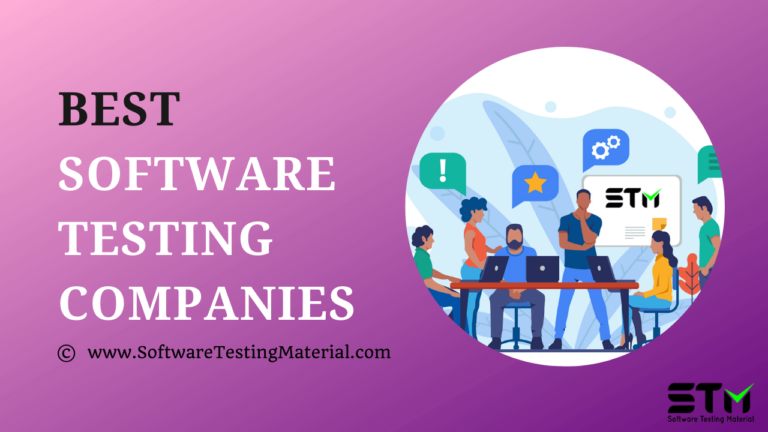

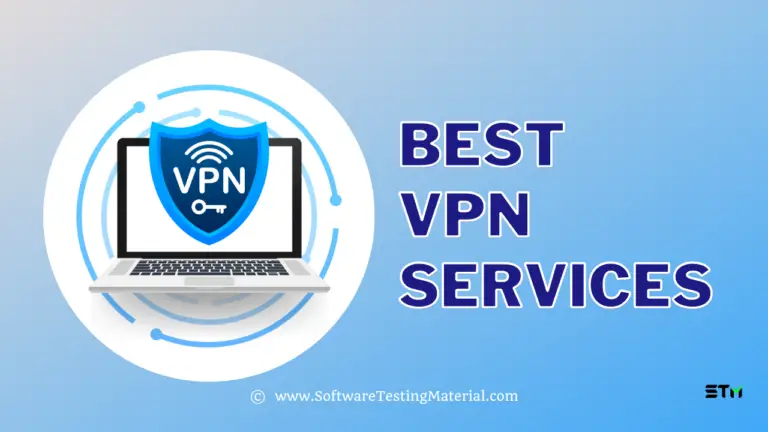
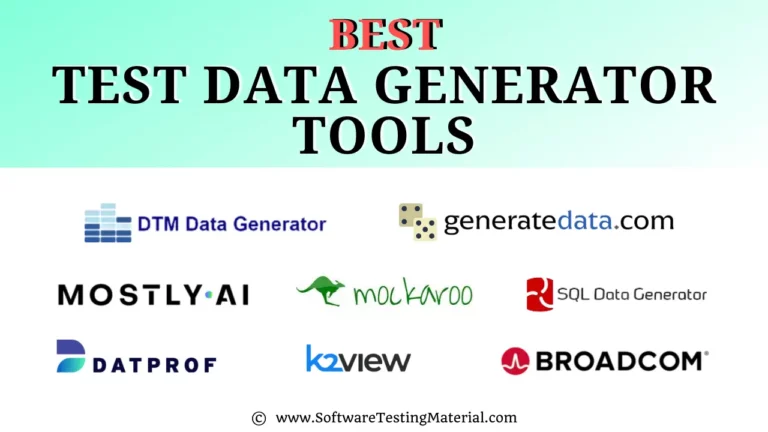
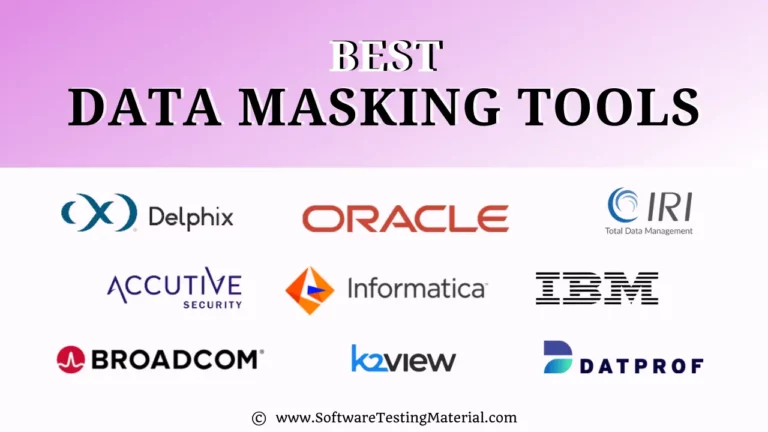
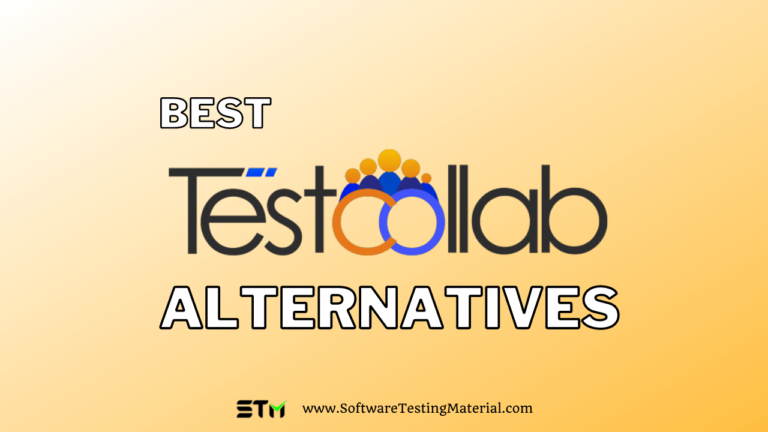

Hi Rajkumar, Could you please create and share appium/mobile automation interview question and answer document.
Hi Amiya Das, Sure we will try to do this ASAP.